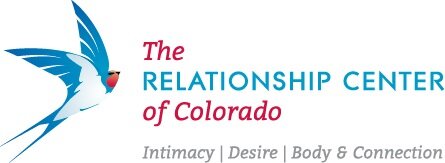Your Relationship with Your Body: Post-Baby Edition
/Giving birth to a child is a monumental experience, and it affects women in various ways and on many levels: physically, emotionally, and of course, sexually. Many women experience a change in the way they view their bodies after having a child. Even women who are normally satisfied and accepting of their bodies admit to having feelings of disassociation from a body they feel no longer belongs to them.
How Your Body Changes
Women are used to bodily changes. however, they generally occur over time, as in puberty and pregnancy, or cyclically, as in premenstrual and menstrual symptoms. By contrast, just moments after experiencing the miracle of giving birth, a new mother may suddenly feel overcome by a body that feels strange and different from her own. The abdominal muscles barely function and feel weak, making even getting up out of bed difficult, and she may experience episodes of urinary leakage, particularly when coughing or laughing. Her breasts have turned from what was once regarded as private and sexual, to having a more functional and less private, albeit important role in feeding her newborn.
Women react to these changes in different ways. Some women don't get anxious at all. They accept the changes as a natural part of the experience, and hope eventually everything will go back to normal on its own, and often, that is what occurs. Others obsess about their bodies, determined to return to their pre-pregnancy state within weeks and begin exercising from the hospital bed. However, a new mother’s reaction, both emotional and physical recovery from childbirth can be facilitated by accepting and loving her new body, realizing that it needs nurturing as much as her new baby, and taking the time to learn about and understand the changes that have taken place.
Learning to Love Your New Body
As an exercise, stand in front of the mirror unclothed and take a good look at your postpartum body. Run your hands over your arms, breasts, abdomen, and tell yourself what you like about your new body. Allow yourself sensual and relaxing experiences such as taking a warm bath, getting a massage, or spending 20 minutes sitting in the sun with a magazine.
As soon as you are feeling strong enough, begin to exercise your pelvic floor and abdominal muscles. Take walks with the baby to encourage your body to resume its pre-pregnancy fitness level, or try a postpartum aerobics video at home. Exercise increases endorphin production, your body’s natural morphine to help ward off postpartum depression, improve energy and boost libido.
Most importantly, decrease the demands you make on yourself as a new mother, wife, and any other roles you may have. Don’t be afraid to communicate your feelings with your spouse and ask for and accept help to manage during this beautiful but stressful period.



